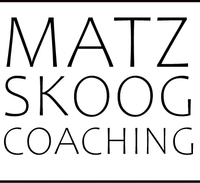Updated: Oct 24, 2020
Most of us have in recent months correctly been focused on the very short term. In most cases that has meant day-to-day survival thinking. If you have been furloughed you may have enjoyed a temporary sense of security. However, as things head slowly back to the new normal different concerns raise their ugly heads. Perhaps you are a potential victim of, in the best case reduced working hours and therefore diminishes income, or in the worst case scenario redundancy. This short piece suggests ten questions to ask yourself that may help you find clarity of direction to what to do and what to think should the worst happen, and your job is in the line of fire as a result of the Corona crisis.
1. What was already about to change before the crisis struck?
Crises accelerate change. Is it possible that your job, or your department was already in line for change and restructure. Don’t be blindsided by a false sense of security because things have been rolling along unchanged for a lone time, because there are decades where nothing happens and then there are weeks where decades happen. The Corona virus is likely to have brought old business models into sharp relief, precipitating and accelerating changes that may have been intended for a more distant future.
2. What can I do to make a contribution in a new reality?
Things are not going to go back the where they were before the crisis so what skills, experiences or personal qualities do you have that could make a difference in a restructured company with a reduced staff. Ask yourself how you can bring value in a changed business environment. Perhaps there is scope for you to make a contribution in areas that were not previously part of your remit. Take the initiative to make a proposal to management. Make it clear that you have ideas and that you’re open to change. A restructured organisation is more than ever in need of people who are positive and creative, so make sure you are seen to be proactive. You want to be part of the solution not the problem, and your initiative will make management take pause and consider you in a different light when making new plans. Soft skills matter in hard environments. Small words or gestures have a big impact with the people who are working hard to protect and resurrect the business.
3. Is my relationship with management strong and positive?
When it comes to redundancies management will always tell you they are not looking at personalities but at the business functions they need to retain for the greater good of the company. But do you really believe this to be true? When it comes to crucial decisions about who is staying and who is going management will be guided by their personal preferences, whether consciously or subconsciously. That’s human nature. We all have unconscious biases and are influenced by our likes and dislikes. Therefore be clear in your mind, and honest with yourself, about your personal relationship to the people responsible for decision-making. Don’t be mistaken into thinking this is not important.
4. Where do I access the right kind of advice?
I would like to think all employers deal with their employees honorably and fairly. This, however, is not always the case. Should the worst happen and you receive notice of redundancy make sure you access the best possible advise about your employer’s contractual obligations towards you. It is important to remember that the function of the HR department in your company, whilst hopefully dealing with your issues as fairly as possible, is primarily to safeguard the interests of the employer. If you are in a higher paid corporate position you may have the resources to seek advise from a solicitor, or if you are member of a union they will provide the support you need. If on the other hand you are working for an hourly wage, perhaps on a cero-hours contract, there will be other avenues open to you. In fact, only the other day I was talking to someone who provides low-coast advice on employment issues to people who may otherwise not have established support networks at their disposal. (I’d be pleased connect you should you wish to.)
5. How good is my story?
Competition for opportunities will accelerate. The question is why should anyone chose you ahead of others and how do you make a compelling case. The answer lies in your personal history, the story of your life. Now is the time to honestly look back on what you have achieved over many years of professional life. Don’t be a shrinking violet and overly modest with your past successes and accomplishments. The idea of generally being good at what you do is no longer enough. To prosper in the post-Covid world needs clarity of message well communicated and backed up with evidence of impact. Now is the time to take a look at your CV, not as a list of qualifications and job experiences, but to consider what message it communicates and what story it tells of your life.
6. How many possible futures can I foresee?
Perhaps you are better placed than many others at present. But your future is ultimately connected to the rest of the world. As such no one really knows what his or her future looks like. The best you can do is to consider a range of possible scenarios. Scenarios are not predictions, however, but rather possibilities to plan for and explore. They will help expand your thinking so you can better anticipate and imagine what might happen. It is important to test your capacity to operate in each scenario and the potential consequences of that possible future coming to pass. As part of this exercise it is also important to ask if you have truly examined the full range of implications. Some scenario may look rosy at first but are they based on a realistic outlook and probability? Optimism bias is real and needs to be challenged.
7. Can I trust the information?
The current Covid world is strong on opinion, but rather lighter on fact. Consultants, advisers, and professionals of every kind are filling the ether with words. Some of it is undoubtedly useful but much of it is not, and a great deal of sifting and skepticism is needed. In many cases the media is an unreliable source of information, social media even more so. There are plenty of vested interests positioning themselves in a confused world. Bias and self- interest are sadly prevalent. The best and most useful thing you can do is to ask questions and test assumptions. In assessing information presented to you the following is a useful checklist: Is the information complete, accurate, verifiable, relevant, recent and objective?
8. Are there changed practices that I should keep?
What new processes have you been using during lockdown that you should keep in the future. On-screen Zoom meetings have become an accepted norm. Some businesses have found that shorter more frequent meetings work better. Cost and time saving measures have been real. What of this has been positive and how can you bring this forward into your new situation. How have your life gained in quality rather than lost as a result. There is strong chance this will happen again. What have you learned and how well are you prepared for another similar event.
9. Am I acting from within my core value set?
People that act fast to reinforce a strong, compassionate, and positive culture stand to benefit the most post-crisis. This is the time to reflect on purpose and meaning. Chose your objective and articulate your values. If you have to make tough decisions what is your frame of reference? What is non-negotiable, and alternatively what can you stop doing and say no to? What would challenge you and render you productive and helpful. Don’t wait to be asked. Be the first to put your hand up to be counted.
10. What are my priorities?
In a post-Covid world most people will be preoccupied with four priorities in the medium term: recovering cash flow, rebuilding a career, rethinking day-today organisation, and accelerating adoption of digital solutions. What are your priorities?
Final thought
With a strong vision of where you are heading you’ll have the clarity of direction you need to move forwards. If the worst happens and you are faced with a situation you did not ask for, and that you do not want, be prepared to answer the question: What do you want?
PLUS… whenever you are ready to talk and reflect on business, life and your specific challenges I’m here for you.
I will provide discussion, encouragement, and the support you need to move forwards. By offering you a safe space for the conversations you are normally too busy to have, knowing you will not be judged, I will help you go further than you thought possible.
If you are stuck: You will become inspired and be able to move ahead.
If you are looking for direction and uncertain of what’s next: You will find clarity and purpose.
If you are lacking confidence and doubt yourself: You will re-discover your power to succeed and get back into the driver’s seat of life.
To book a no obligation, free strategy session contact me.

